16 Jul 2024
On July 10, 2024, as the first stop of the special tourism in the summer school programme "Doing Business in Changing China" jointly organized by the International Business School Suzhou (IBSS) and the Department of China Studies, 74 students from 16 countries visited the ancient city of Suzhou, experienced the culture of Jiangnan, and expanded their business horizons.
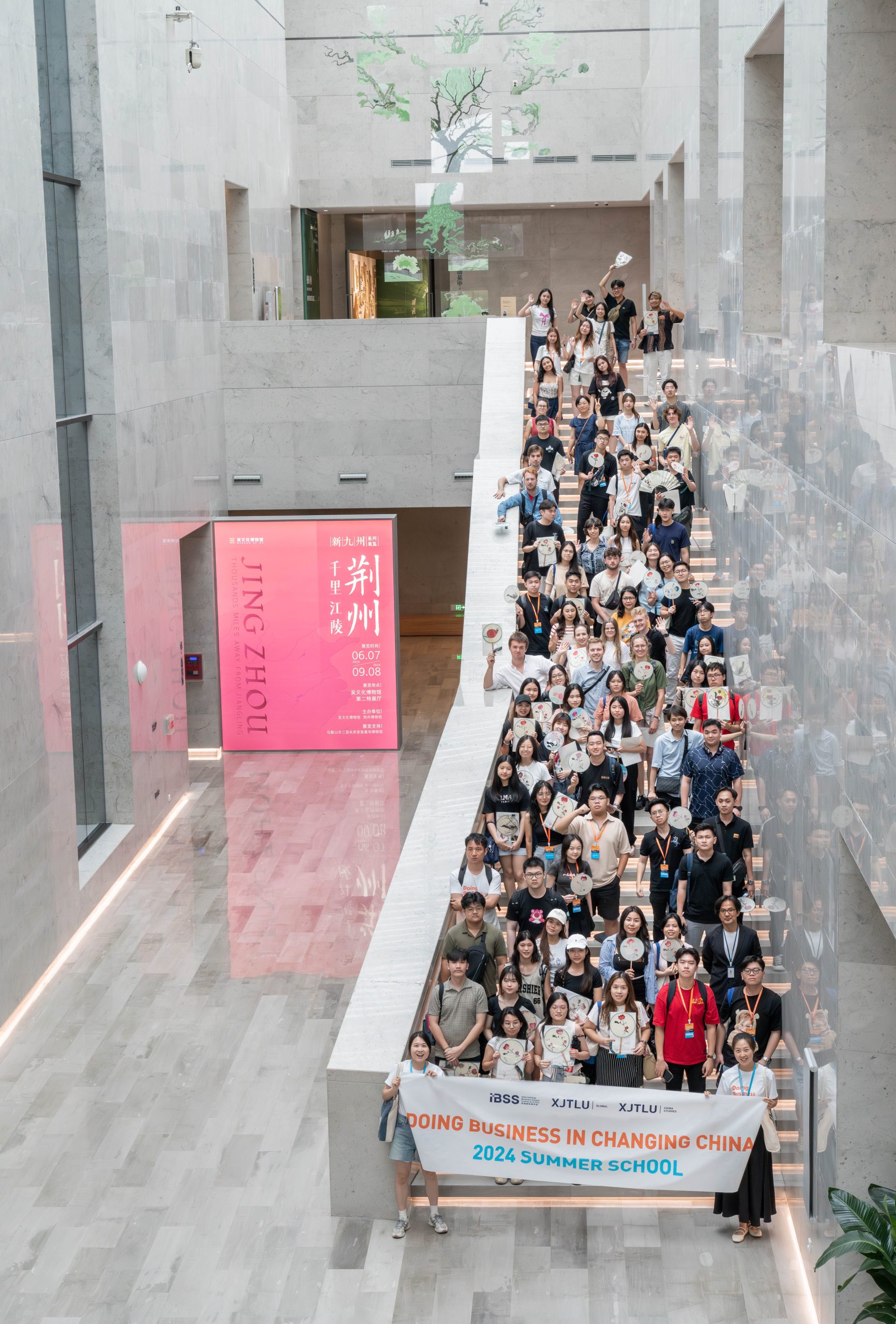
During the journey, Dr Liu Xi from the Department of China Studies introduced this city with a history of over 2,500 years to everyone. She recited "See a friend off to Wu" by Du Xunhe of the Tang Dynasty, vividly depicting the prosperous scene of Suzhou at that time.
The students then visited Pingjiang Road in the ancient city, where they experienced the poetic scene of "houses pillowed on rivers".
The highlight of the trip was a visit to the renowned Humble Administrator's Garden in Suzhou. As they explored the garden, the tour guide shared its historical significance. She elaborated on the unique characteristics of Chinese gardens, describing them as an extension of living spaces into nature, embodying a free and winding layout that is both subtle and profound. These gardens are crafted with a unique ingenuity, imitating nature and combining aesthetic appeal with practicality. Walking through the garden is akin to strolling through a vast landscape painting, with the mountains and waters being the most crucial elements. The guide emphasized the belief among Chinese gardeners that water enlivens the artificial mountains, as encapsulated in the old adage: "Water and mountains complement each other, enhancing the beauty of the mountains."
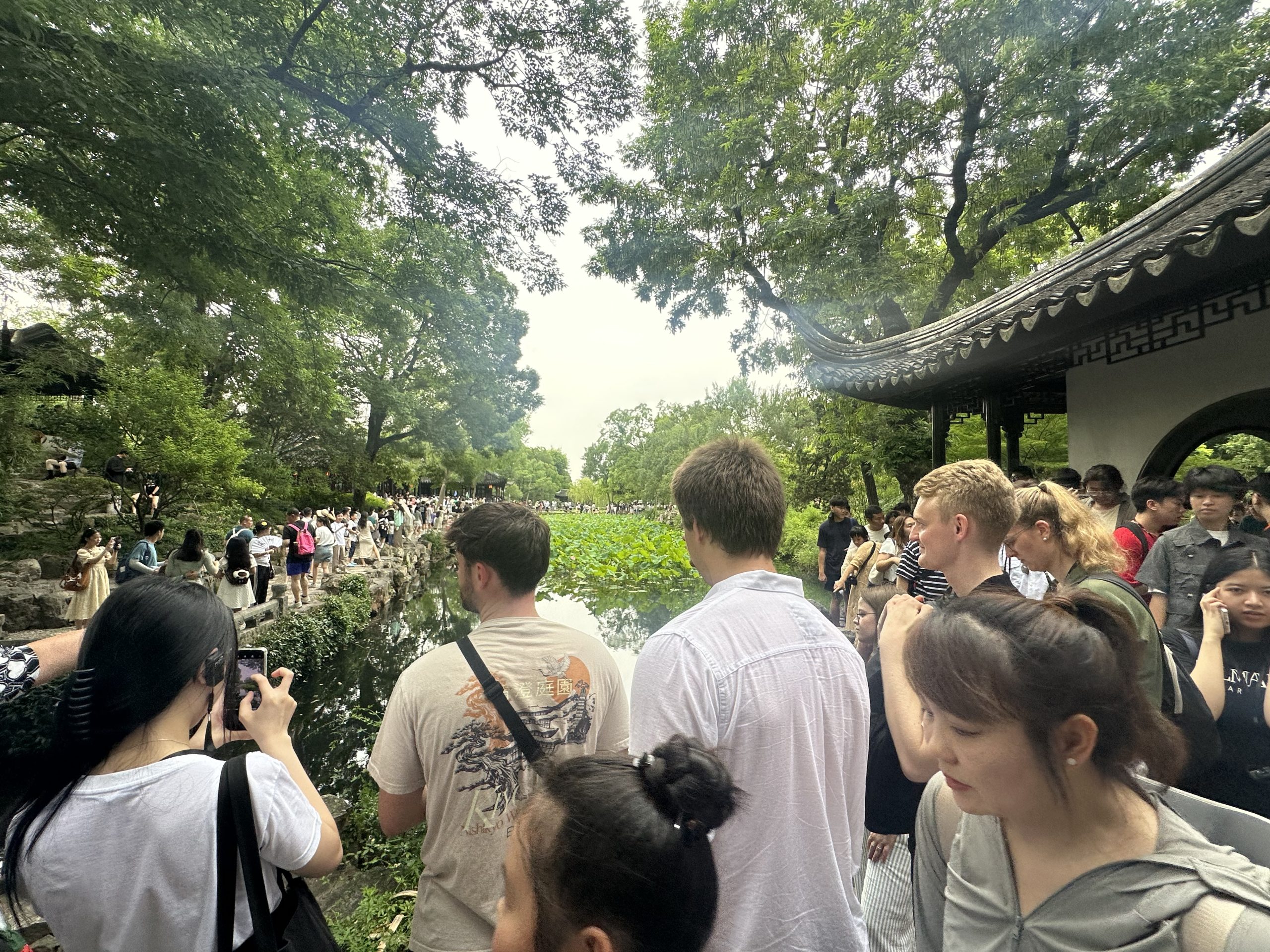
Visiting Humble Administrator's Garden
After that, the students travelled to the Museum of Wu Culture, which was opened in 2020. The students were taken on a tour of the museum by Xinyu Chen, an officer in the Department of Publicity and Education and the guide, where they were introduced to historical relics dating as far back as the palaeolithic period, of which demonstrated the steady growth of Wu culture, the specific culture of the region around Suzhou. They encountered ceramics, bronzes, jades and more, and traced their evolution over time. After some free visiting time, Zheng Wei, an officer in the Department of Publicity and Education gave a brief introduction to the history of fans in China, outlining how their function changed over time from large and rigid representations of power, gradually transforming into the small, functional and aesthetic objects we know today. The students saw various images of fans as depicted in Chinese art history, and gained some understanding of the different materials and styles of fans used in Chinese history, as well as the relationship between fans and painting.
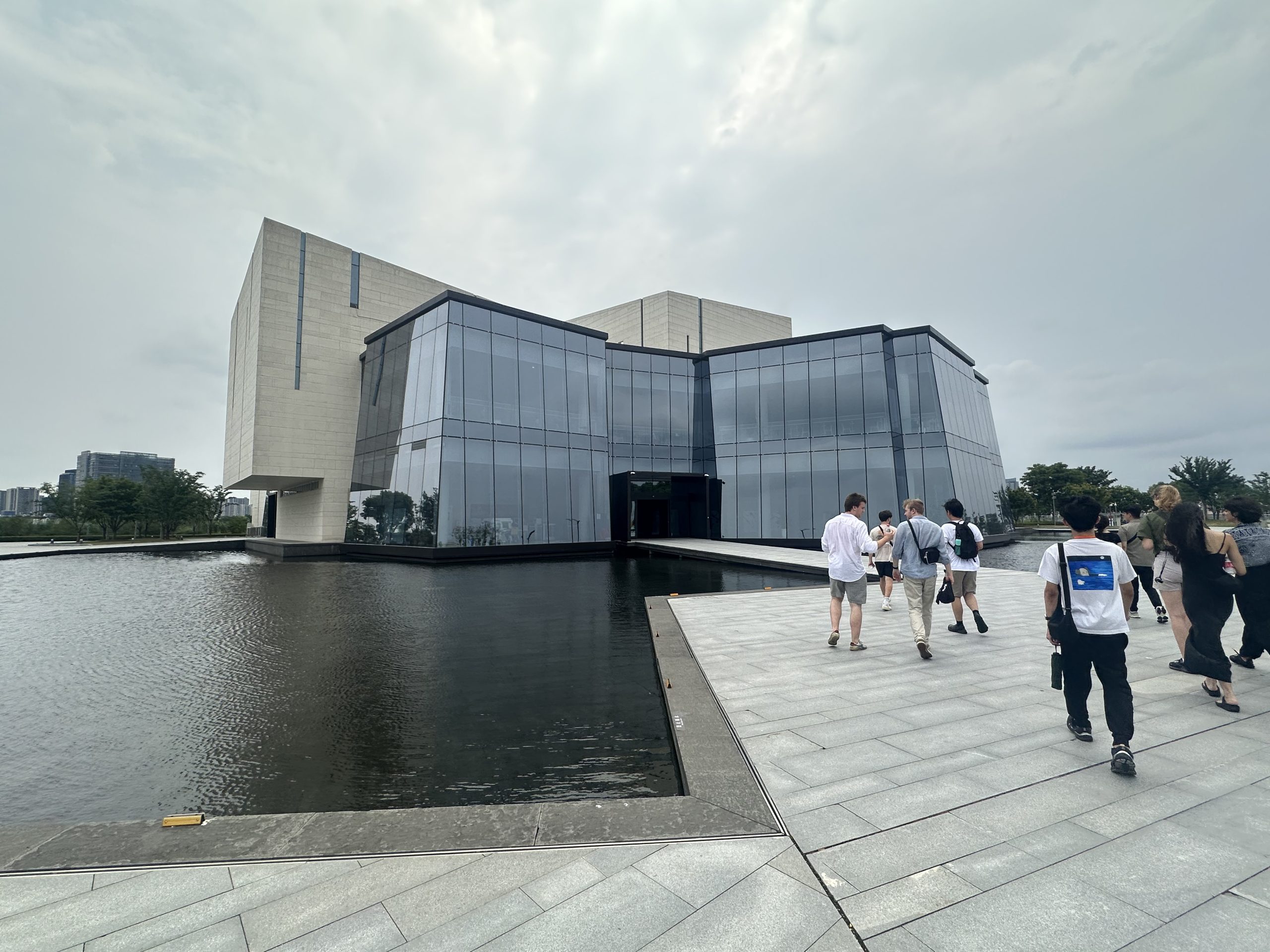
Museum of Wu Culture
After the concise lecture, students were offered the chance to attempt painting their own fans. Zheng Wei demonstrated several fundamental flower painting techniques. Students gained practical experience in ink and colour painting, an essential part of Chinese culture, and left with their own hand-painted fans, now being better equipped to handle the heat of the Suzhou summer.
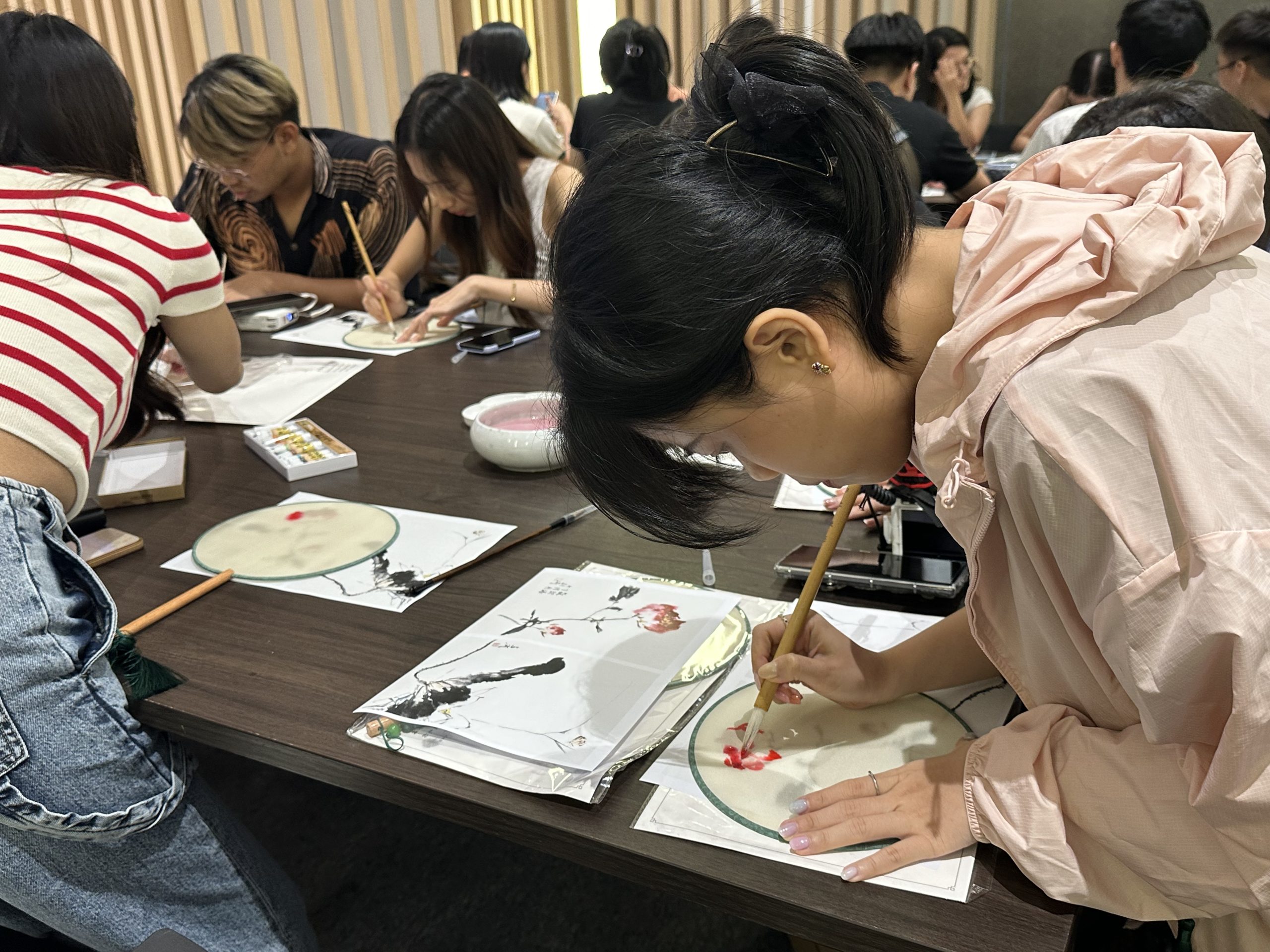
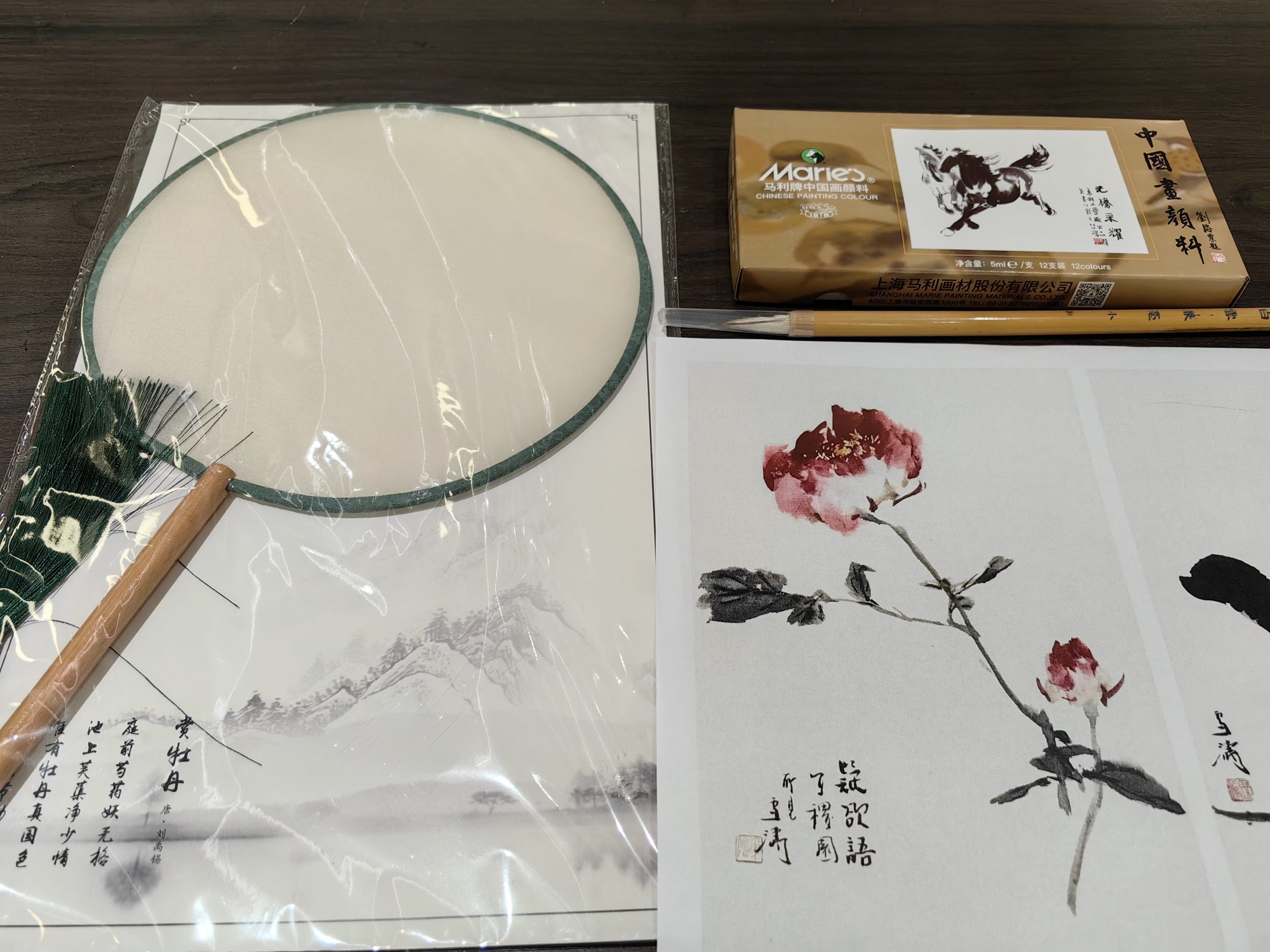
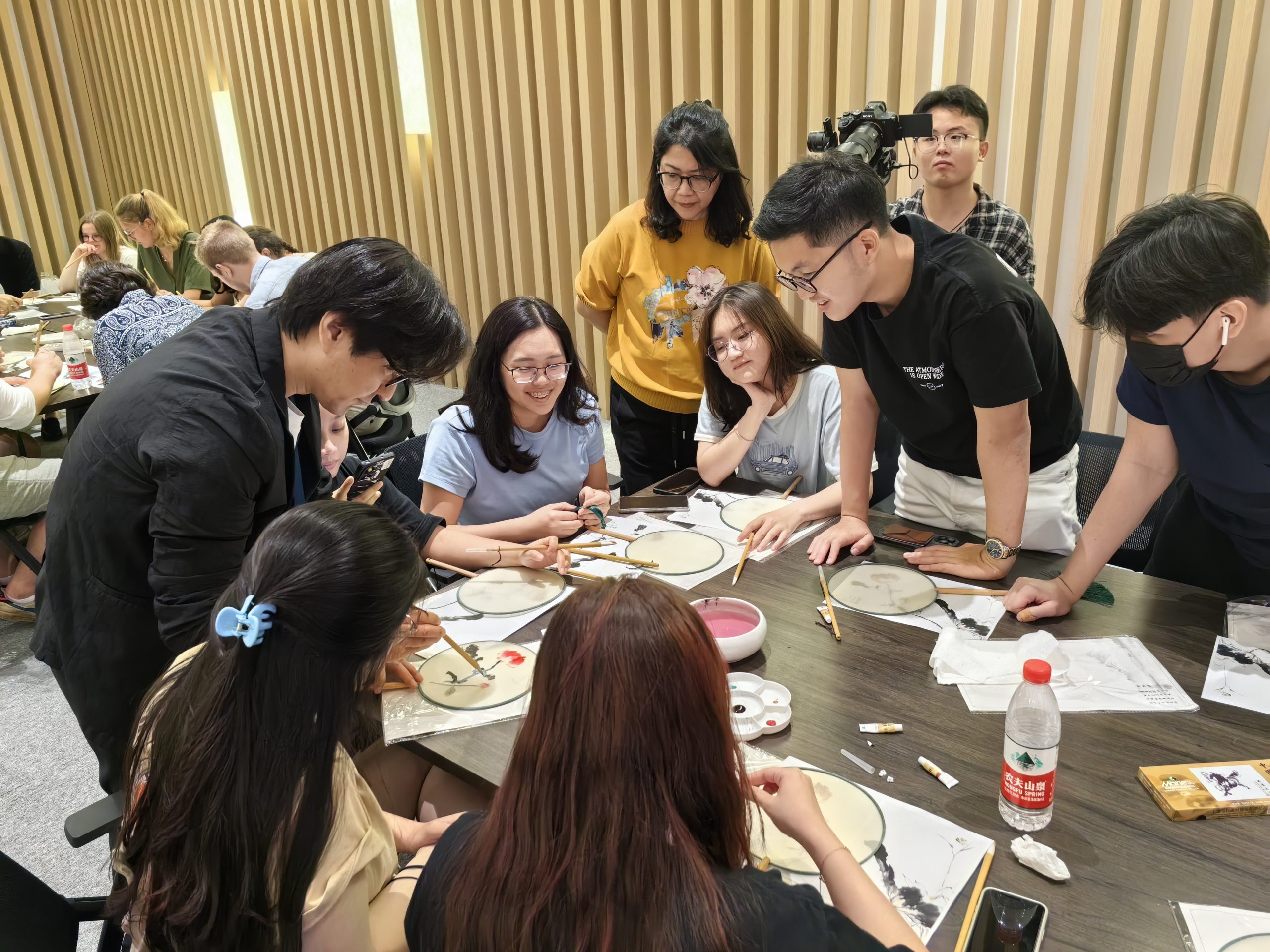
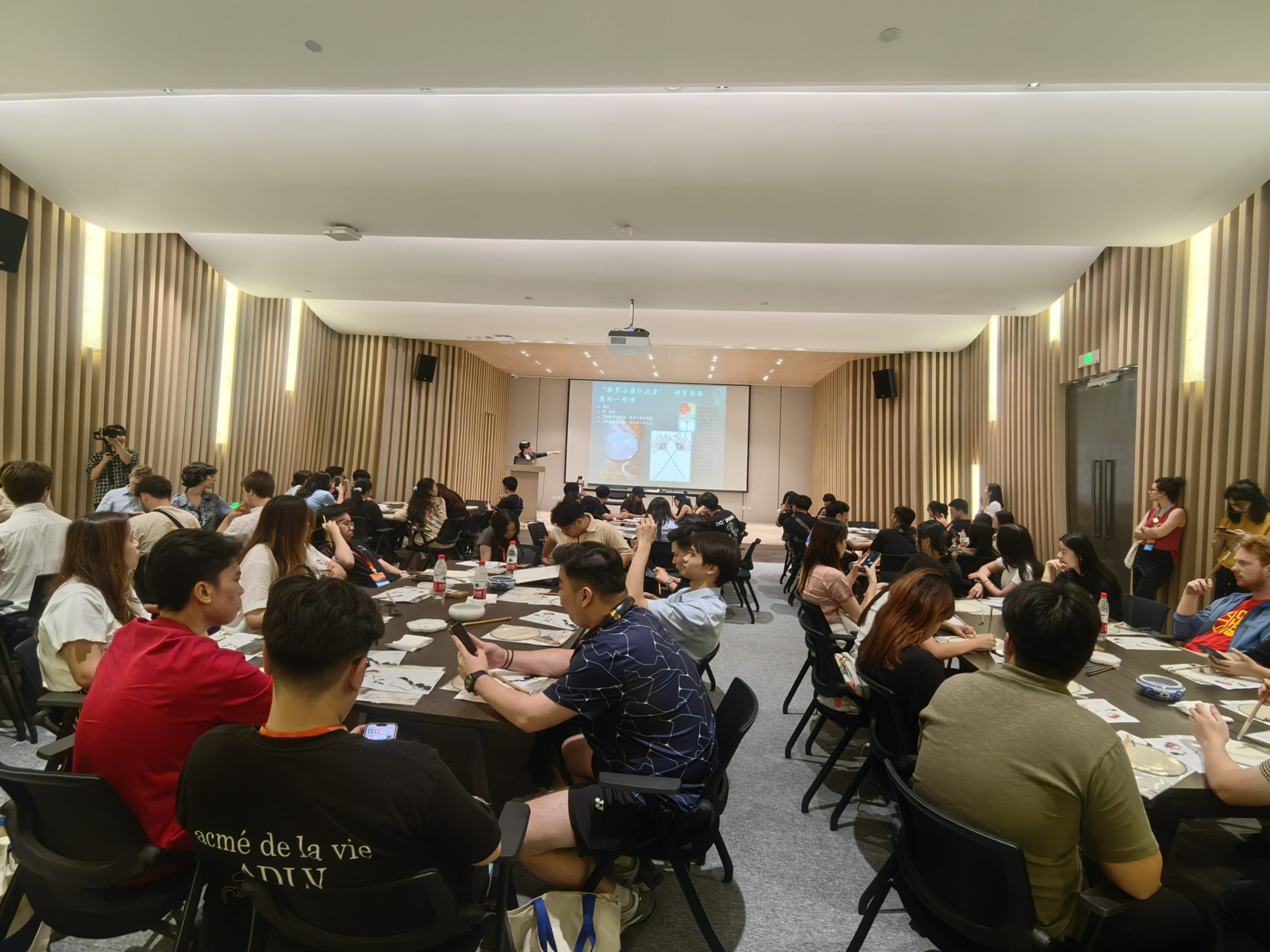
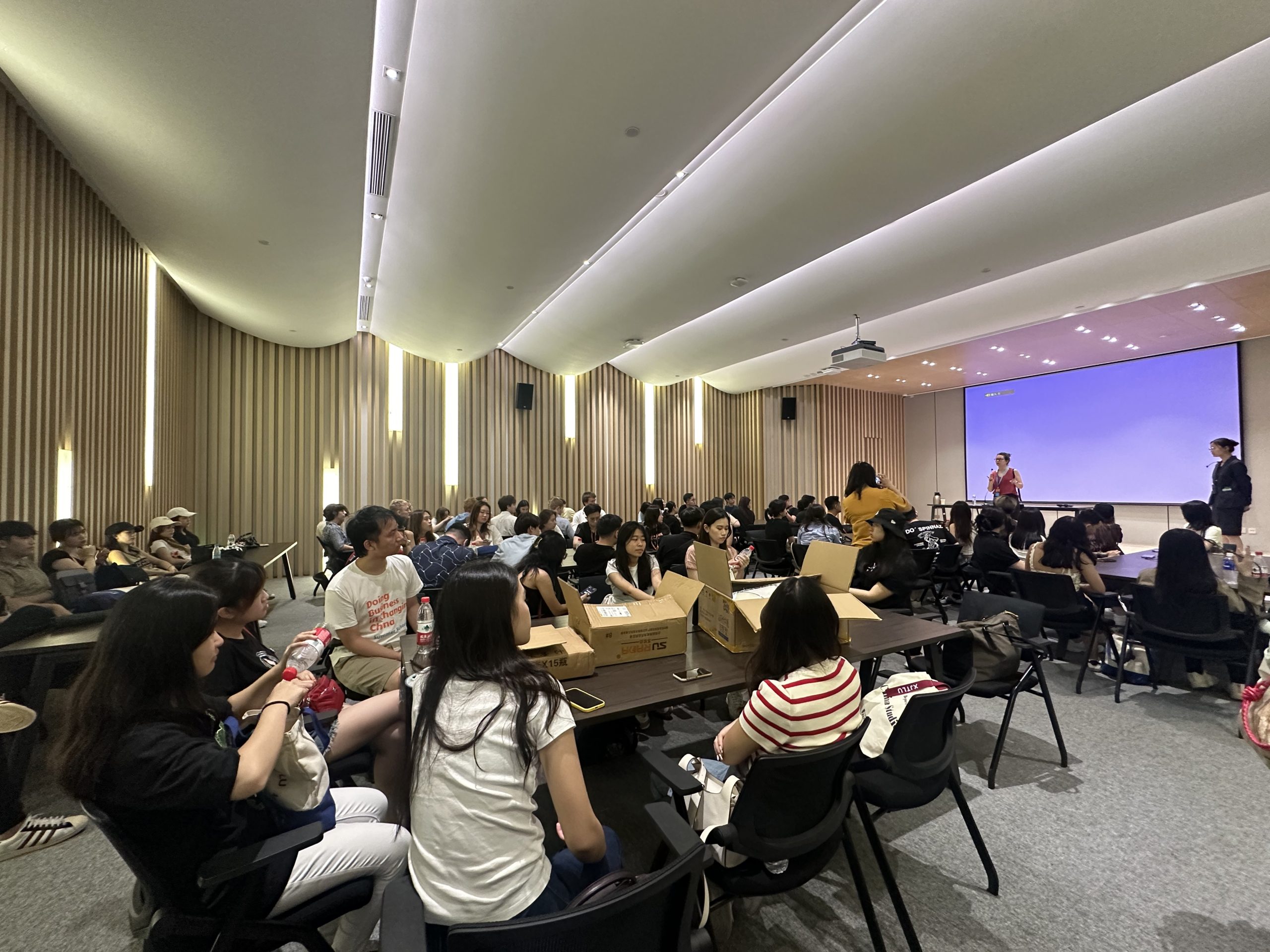
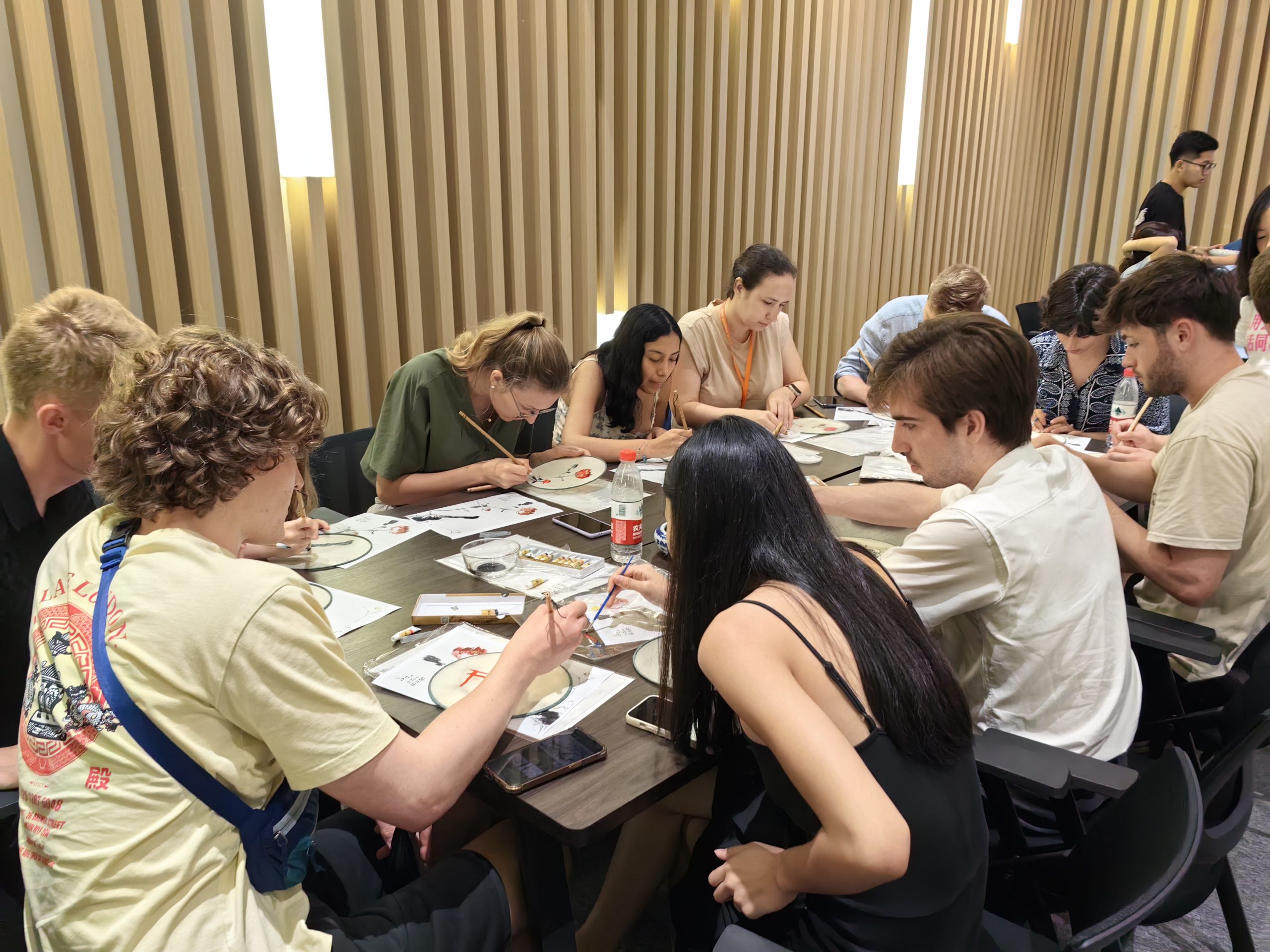
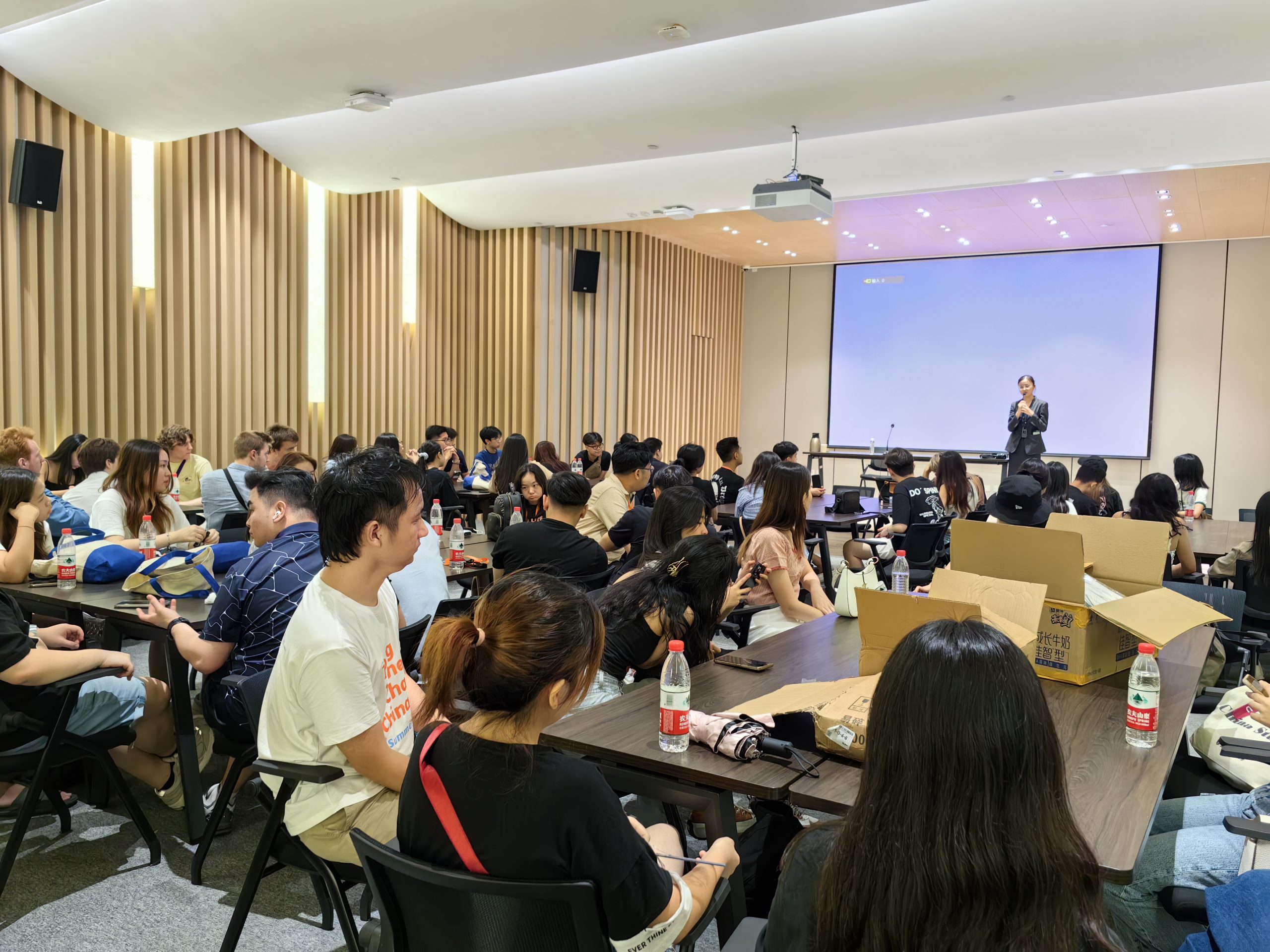
The Work Placement, Employability and Career Development (WEC) team of the International Business School Suzhou (IBSS) has been planning and organising the summer school’s itinerary to ensure that students could fully experience the historical and cultural charm of Suzhou. Professor Ewout van der Schaft, the Associate Dean for Internationalisation of IBSS, said, "Suzhou has a long and rich history and culture. It has always been an economically prosperous area throughout history. We are glad to see that our summer school students had the chance to explore the integration and transformation of traditional business into today’s modern economy, by also understanding the rich cultural heritage of Suzhou.
16 Jul 2024








